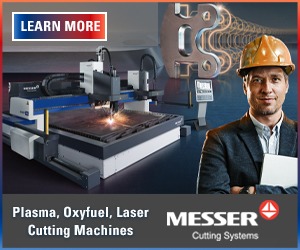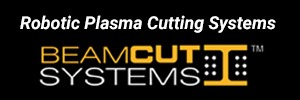Industry Standards Are Evolving Faster Than Ever
For auto body shops or tractor repair facilities to effectively keep up with the new demands being driven by fuel economy mandates and remain profitable, they must invest in easy to use equipment that is capable of welding both steel and aluminum.
Posted: March 1, 2016
Vehicle and trailer standards are becoming increasingly more rigorous, forcing the automotive industry to develop and introduce new materials to the market. Automotive and trailer manufacturers are now focused on developing lightweight and fuel-efficient vehicles. Aluminum applications are becoming a more popular option as well because they improve the design without compromising the performance and reliability. A vehicle constructed primarily of aluminum will present many challenges for the maintenance and repair industry because steel is the main application used today. Therefore, to provide fast and simple solutions, a welding machine capable of welding both steel and aluminum while being easy to use is crucial in any auto body shop or tractor repair facility to keep up with those new demands.
In addition, current national fuel economy mandates are dictating significant design changes to new vehicles and trailers. In order to comply with these changes, shops are faced with learning new techniques while training technicians to weld aluminum in addition to steel. To reduce the already expensive overhead costs auto body and repair facilities endure, it is critical that the welding machine provides versatility and timesaving features. For example, business owner Louie Schwab, a welding enthusiast from Golden, Colorado, originally learned to weld from his father on an old welder from Forney Industries, Inc. (Fort Collins, CO). “When investing in a new machine, I look for a welder that is dependable and versatile. I mostly weld on motorcycles and cars, so it’s important for me to have a machine that can easily weld on a variety of metals and can move outside of the garage with little struggle.”
Having a welder that offers both steel and aluminum capabilities significantly helps save time and money while remaining well ahead of the curve and being more efficient. To weld both metals with one machine allows technicians the ability to complete welding tasks faster and move on to the next project. Jason Mahugh, a senior product line manager and welding engineer at Forney Industries, one of the country’s oldest welding companies, addressed these needs when designing the new Forney 242 Dual MIG machine. “This machine has two gas inlets, two gas solenoids and a switchable output which allows the use of a spool gun to weld aluminum or a traditional MIG gun to weld steel. The steel MIG setup can use standard 8 in or 12 in spools of solid steel wire,” explains Mahugh.
https://youtu.be/skePrgcgGqI
The market demanded a more versatile machine, so the length of the power cord and gun cables were extended to create a larger working envelope and less moving of the machine. “Although the machine doesn’t include a dual cylinder rack, the gas hoses are long enough so the bottles can be secured near the power outlet rather than being transported on the machine reducing the weight and bulk of the machine so it’s easier to move around when necessary,” notes Mahugh.
Shops are also looking for a machine that is easy to use. The more complicated menu-driven machines cause the user to spend extra time selecting the appropriate metal thickness, wire diameter, gas supply, pulse parameters and other settings, taking time away from completing quick repair welds. The convenience of straightforward controls and dials offer simplicity and reliability. “This machine is designed to help save time in the workplace,” adds Mahugh. “The spot-weld timer and knob allows the user to spot or stitch weld consistently. There’s a dial to control the wire feed speed and a switch to select the appropriate transformer tap setting. It also has the ability to adjust the wire feed speed on the spool gun so finding the “sweet spot” is quick and easy.”
Shops must have a machine that can weld a variety of thicknesses too. “This machine is robust, with capabilities for welding the thinnest sheet metal up to thick plate where it can spray transfer .035 in wire, increasing deposition rates and providing spatter free welds,” states Mahugh. Most small repair shops want to invest in an affordable machine that will be efficient, without interrupting the integrity of the business. The Forney 242 Dual MIG comes with a spool gun and extra regulator for under $2,000 to allow a small repair shop to be economical, keep costs low and easily take on new business. Some of the more complex machines on the market offer these same solutions, but they can cost anywhere between $5,000 and $25,000. The goal for designing this machine was to use proven technology while making it user friendly and affordable.
Blair Weilnau is a contributing writer for Forney Industries, Inc., 2057 Vermont Drive, Fort Collins, CO 80525, 800-521-6038, Fax: 970-494-6837, www.forneyind.com.











